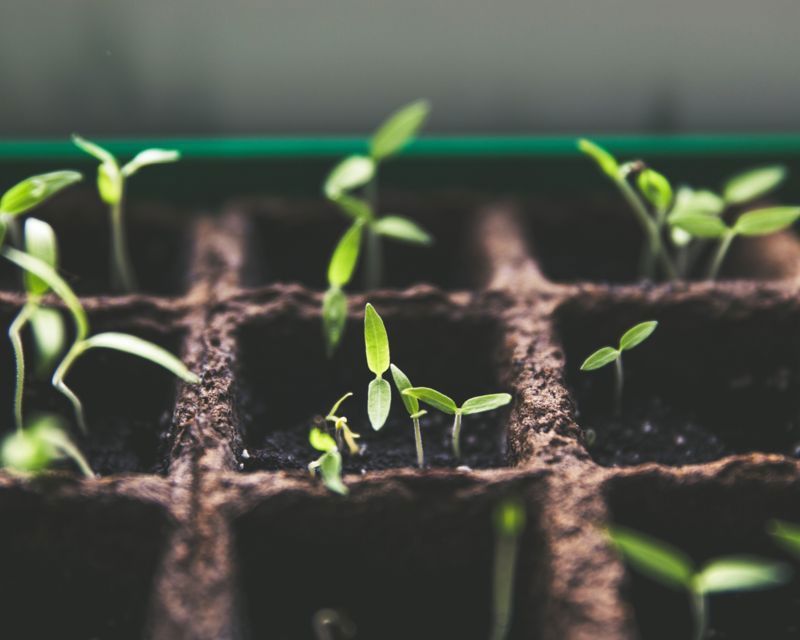Yates Account
Join now
Create a Yates account today!
Sign up to join the Yates Garden Club for monthly e-mails packed with seasonal inspiration, tips for success & exclusive promotions.
Plus if you’re a Garden Club member you can take part in the Yates Growing Community - a blog to share successes, get advice & win prizes in fun challenges along the way!

Forgot password
Enter the email address associated with your account, and we'll email you a new password.

We often hear from gardeners wondering if our seed products are ‘GM’ (Genetically Modified). The short answer is no - they are not, but we understand that some uncertainty remains. So, we’d like to offer some clarity by explaining what Genetic Modification actually is, in relation to seeds.
Check your sources…
Being such a divisive topic, with lots of passionately held opinions, it's important that you gather information from responsible sources. It's best if you can form a well-rounded perspective and decide for yourself. Social Media often isn't the most reliable source of truth on any topic; consider whether the groups or individuals you're seeking information from have any legal or professional obligation to back up their claims with evidence or reasoning. Is there any real risk to them if they get it wrong?
We stand by the information and resources supplied on our own website. But if you're ever in doubt, it makes sense to find out what the science-based and refereed sources have to say. It's a hot topic, so sadly false and incomplete information is easily circulated, particularly online.
GM, Hybrid, Heirloom?
GM seeds only make up a tiny percentage of the global seed supply. Here's a quick explanation of the three broad categories used when talking about seeds:
GM Seeds: are those produced from genetically modified plants that couldn't occur naturally, without human intervention. This process uses 'in vitro' methods to alter plants at a cellular level. A 'GMO' is a Genetically Modified Organism, which is the end result of the modification.
As mentioned, there aren't many GM seed varieties in circulation around the world. These are mostly GM varieties of alfalfa, canola, cotton, maize, papaya, soybean, sugar beets and summer squash. They aren't designed or intended for use in home garden situations - they're typically sold at a premium price to farmers and commercial growers in overseas markets, that have more relaxed rules than NZ.
Here in New Zealand it's illegal to import Genetically Modified seed or nursery stock without approval from the Environmental Protection Authority (permission is rarely granted and is extremely unlikely for GMOs that would be released into the environment). The Ministry of Primary Industries strictly enforces this regulation at the NZ border, requiring some seed varieties to be tested for proof they don't contain GM genetic material before allowing them to be imported.
Hybrid Seeds: these are produced by natural means, simply by controlling the pollination process. Breeders identify two plants from different species, with desirable features that they want to combine. It's important to note the species need to be closely related enough to breed together naturally (e.g. a horse bred with a donkey creates a mule: the mule is a hybrid). The breeders will selectively breed or ‘cross’ the plants to produce offspring with characteristics such as bigger fruit, better yield or enhanced disease resistance. Plant breeders have been dramatically improving plants in this way for hundreds of years, although the science behind it really took off during the 20th Century. The resulting plant is commonly referred to as a first generation cross or ‘F1’ - you'll often see hybrid seed variety names which include 'F1'.
Open Pollinated (including ‘Heirloom’) Seeds: are pollinated by insects or wind, rather than people. These are typically varieties which have proven to remain 'true to type' over many generations. This group includes many cultivars, that were originally established by selective breeding! The oldest of these (older than 50 years) are called 'Heirloom' varieties, in the sense of characteristics being passed down from generation to generation. In a delightful parallel, heirloom varieties are often cherished and passed down through generations of gardeners.
Yes, but are Yates seeds GM??
No, they aren’t. We require our seed suppliers to confirm that all the seeds used in our seed packets are produced via conventional methods and are not genetically modified.
More questions?
If you have any further questions or uncertainties, please get in touch! We're happy to discuss it further and fill in more detail for you.
You can call us on 0800 693 297, or write to us at PO Box 1109, Auckland 1140, New Zealand.
A friendly Horticulturist is available to answer your questions:
Monday, Wednesday & Friday
10.30am – 4.30pm
For Poisons Information New Zealand, please call 0800 764 766
In an emergency, please call 0800 220 770 (ALL HOURS)
We look forward to hearing from you soon!












Share
Share this article on social media